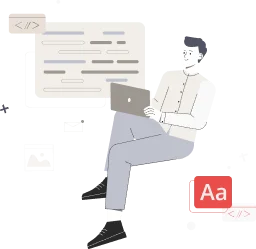
Linguistic Tips To Help Ramp Up Your Virtual Presence
About the class
Despite the great deal of uncertainty surrounding us, one thing that is for sure is that we are going to be zooming as part of our professional lives a lot more going forward than we ever imagined. This is both good and bad. Good because we can reach out to people and share ideas across the miles, but bad because giving presentations in person is already hard for most of us. Toss in having to talk to a blinking light on our computers with barking dogs and kids in the background and it can be a recipe for disaster - or at least a stilted less than exciting presentation. However, there are some linguistic tricks that can help you with audience engagement.
As a sociolinguist, I research how language is tied to our social identities and can shape how people perceive us. Research shows that zoom (or other virtual platforms) causes some dissonance because speech exchange is more delayed than face to face interactions and tends to increase the level of formality of the event. This can make us less confident when speaking in meetings or giving presentations because of this difference in the feedback loop. A better understanding of how to use certain types of language features such as intensification, pitch variation and strategically using questions can help up your zoom game.
You will leave with a better sense of:
- Why virtual presentations require different skill sets than in-person ones
- How our linguistic style impacts how we are perceived
- How to use pitch, hesitation, question forms and adverbial intensification to increase audience interest
- How to incorporate these into virtual presentations
About the Presenter
Dr. Valerie Fridland is a professor of sociolinguistics and the former director of English graduate studies at the University of Nevada in Reno. Studying the science and culture behind the way we speak, her work receives support from both the National Endowment for the Humanities and the National Science Foundation. In addition to academic books and articles, she writes regularly for the popular Grammar Girl podcast and contributes a monthly blog on language to Psychology Today. Currently, she is working on a popular audience book, I Hate When You Say That!, that uncovers the surprising history and purpose behind all the speech habits we love to hate, coming out with Viking/ Penguin Press in Spring 2023. You can also sometimes catch her appearing as an expert for The Lisa Show, The Mentor Project, CBS news, The Nation and Newsy’s The Why.